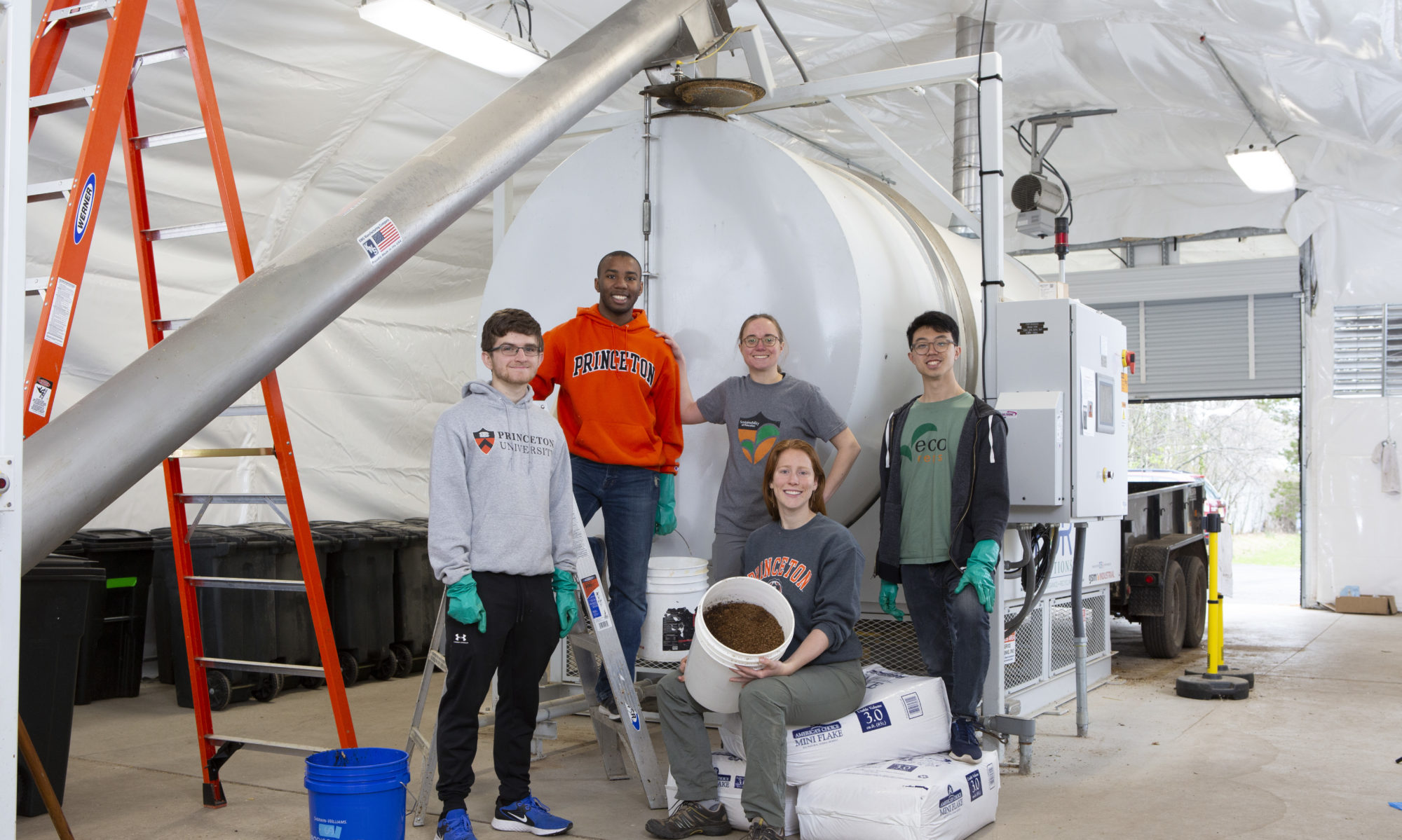Good evening all,
This post features an update from the S.C.R.A.P Lab’s newest (and first) alum – Helena Van Brande ’19!
In between translating poems across three different languages for her senior thesis, and premiering in French theater shows among other activities, Helena worked several hours per week at the S.C.R.A.P. Lab for much of the 2018-2019 academic year and was an invaluable assistant. Although we will miss Helena here in Princeton, she has already used her composting knowledge to advance food scraps diversion efforts in her hometown and soon as a FoodCorps service member. Read more about Helena’s post-graduation plans below:
Helena after installing a Jora composter at her family’s home.
What are your post-graduation career plans?
Helena: “I am going into a year of service with FoodCorps Americorps in Lakeview, Oregon. I’ll be working with the local community, including the county hospital and local schools, to drive and develop different food-related educative projects. Lakeview, Oregon is a small town in South-East Oregon with a population of less than 2500. Situated in the high desert region, it’s surrounded on all sides by beautiful mountains, lakes, and national parks. I couldn’t be more excited for the opportunity to move to a place like Lakeview and help educate young people about material I am really passionate about. Although I will be in a position to educate, I have no doubt that I will be learning a lot as well.”
How did working at the S.C.R.A.P. Lab prepare and/or develop your interest in pursuing this line of work?
Helena: “Something I will bring with me as a FoodCorps service member is, of course, composting. I have truly loved the time I’ve spent working at the SCRAP Lab with Gina and the other students, even though the work would leave me smelling of rotting and half-digested food scraps for hours. Through Gina, I’ve learned a lot about the chemistry of compost and how important it is to maintain a balance of Nitrogen – Carbon material entering the system, while also keeping an eye on the kinds of food scraps that the university provides us with. Admittedly, these are often less than ideal being cooked, liquid, and/or oily. I hope that I can take some of the things I’ve learned at the SCRAP Lab and scale it down to a manageable size, maybe even institute a few worm farms.
To me, composting is one of the key ways in which we as individuals can directly influence our environment by taking food waste that would otherwise get dumped into the landfill and instead convert it into nutrient-dense soil, which we can then feed back into the earth, replenishing bacteria, microbes, bugs, and rejuvenating soil chemistry and composition. In turn, this process invigorates plant-life, which is incredibly important if we want to keep agriculture sustainable. Although gardening will certainly be a part of my job description in Lakeview, the growing season is quite short due to the high elevation. As a result, my focus will be more on food systems, nutrition, food preparation, and composting.”
We wish Helena the best of luck in her future endeavors. Next week we will feature the three new students who have joined the team for the summer.
Weekly Data (6/27 – 7/11): 100,000 lbs. milestone!
Since the project’s start 10 months ago, the S.C.R.A.P. Lab has converted over 100,000 lbs, or 50 tons, of uneaten food into compost!
| Total Food | Acad./Resid. Buildings | Campus Center/Cafes | Wood Shavings (BA/CS) | % BA/CS | Compost Off-Loaded | GHG Emissions Saved (MTCO2-eq) | |
| 6/21 – 6/27 | 2,048 | 18 | 2,030 | 676 | 33% | 2,000 | |
| 6/28 – 7/5 | 2,796 | 38 | 2,758 | 895 | 32% | 2,500 | |
| 7/2 – 7/11 | 2,254 | 42 | 2212 | 779 | 35% | 2,000 | |
| Cumulative (lbs) | 103,973 | 1,990 | 101,983 | 32,628 | 31% | 90,000 | 31 |
